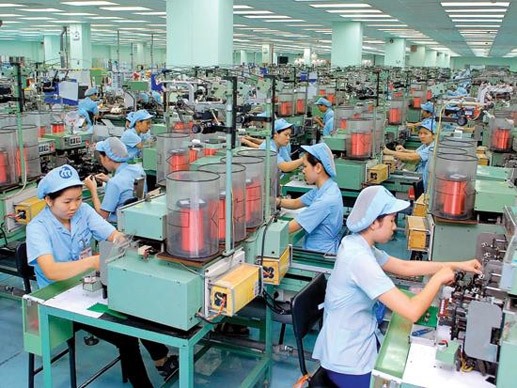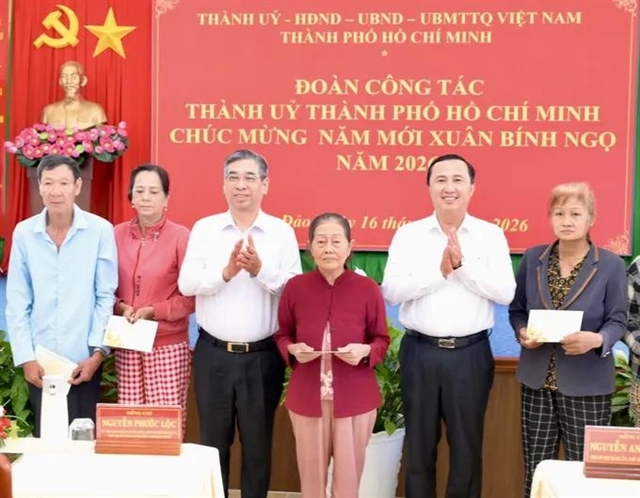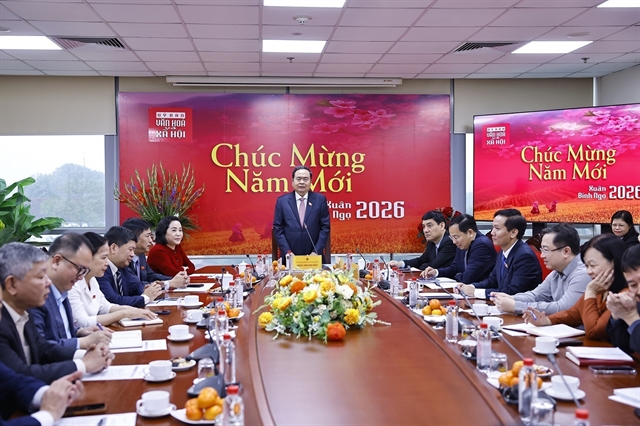 Talking Shop
Talking Shop

The establishment of the ASEAN Economic Community (AEC) in 2015 is a major milestone in the regional economic integration agenda in ASEAN, offering opportunities in the form of a huge market of US$2.6 trillion and over 622 million people. Viet Nam News reporter Thu Giang talks with expert and businesswoman about the AEC’s advantages and disadvantages on Vietnamese companies.
 |
A year after the ASEAN Economic Community (AEC) was established, creating a huge market of over 622 million people with a market value of more than US$2.6 trillion, two experts give Viet Nam News a mixed review.
 |
| Nguyen Thi Thu Trang |
Nguyen Thi Thu Trang, Director, Vietnam Chamber of Commerce and Industry’s World Trade Centre
Can you give us your assessment of the ASEAN Economic Community (AEC), a year after its establishment?
It’s time for ASEAN members to prove their determination in meeting the targets of forming a single market and a common production hub, promoting people-centered development towards increasing prosperity, competitiveness and sustainability.
The establishment of AEC is a major milestone in regional economic integration. It will boost implementation of the ASEAN’s targets, but it is neither the first nor the final step of the integration process.
ASEAN was founded in 1992 with a series of legal commitments and agreements as well as co-operation declarations. So we have been implementing those commitments and agreements for many years.
One year after the ten ASEAN members formed the AEC, although we have made efforts to help enterprises know and understand it, the results are not as good as expected. In the past year, the import and export values between Viet Nam and ASEAN seemed to go down. The rate of goods exported to ASEAN reduced compared with 2015, the year AEC was established.
In the past year, leaders of ASEAN countries continued to meet and make additional announcements and commitments of co-operation, but from a legal angle, there was no new document enforcing these.
AEC has opened opportunities for enterprises to develop their business, so how did this reduction in export happen?
It’s difficult to pinpoint a concrete reason for the reduction in exports. It could have been market demand or other economic factors that affected our exports in general and between Viet Nam and ASEAN in particular.
However, I want to emphasise the fact that the volume of trade between ASEAN members has been big, with tariff removals on since 2010. From 2015 to 2016, there was not much added benefit to be gained via tariff removals because this had been done already for a group of nations. Viet Nam was still implementing tariff reductions following AEC commitments during this time. Other ASEAN countries could have used this opportunity to increase their exports to Viet Nam.
Information is seen as a very important part of enterprises developing their business. How can they be helped in this regard?
In the age of information, we don’t lack information. The issue is that our businesses need concrete information that meets their demand and directly impacts their business operations. At present, our information is somewhat unconnected and vague.
So the information has not been customised for enterprises or selected to help them access it in the fastest, most effective way. For example, if an enterprise going to export a product to an ASEAN country wants to have information about tariffs levied on that product and preferences for its trade within the bloc, it will have find the information from different sources. If we have an official, selective information hub, it will help enterprises save time.
However, updating information is not enough, the most important thing is how to take use of such information to improve their competitiveness and develop the business successfully.
For example, within ASEAN, it’s said that the ten member economies have many similar characteristics so that they will compete with each other – and collective benefits will not be much. However, the modern economic situation is different – it is directed toward consumers – it may be the same kind of product, but the customers will have different needs. The important thing is whether businesses can create different options for customers. If they can do this, they can succeed in the ASEAN market, which has a high consumption volume and increasing income.
 |
| Nguyễn Thị Hương Liên |
Deputy Director of cosmetics maker JSC SUN STAR, Nguyễn Thị Hương Liên
What are the pros and cons your company has experienced since the AEC came into being?
AEC has opened up a wider market for Vietnamese enterprises to trade goods, with the removal of several tariff barriers. My company can enjoy tariff cuts on goods imported from ASEAN countries – it is a factor helping our company reduce costs.
However, we are facing a lot of difficulties.
The first one is the pressure of competition in the Vietnamese market. Goods imported from ASEAN have attacked the Vietnamese market and hurt the domestic businesses’ interests. For example, after Big C, one of the country’s biggest supermarket chains, was acquired by a Thai billionaire, Thai food products can end up dominating the shelves. It’s currently difficult for Vietnamese businesses to send its goods to this chain.
Secondly, when joining in the AEC, the Vietnamese businesses will be bound by ASEAN regulations, but we did not have the opportunity to take part in building or revising such regulations before they were put into force.
Thirdly, it’s not easy for businesses to get access updated information. The number of documents is many, making it difficult for business to study them. So we highly appreciate the opening of AEC Portal www.aecvcci.vn, which can create favourable conditions for us to quickly access updated information that will directly impact our products.
We enterprises will have to take initiative in accessing information. We will have to have a workforce to update information. We expect relevant agencies and sectors will spend some time to gather ideas from businesses before taking decisions or participating in drafting regulations.
What did you learn from the information situation?
Our absence from the meetings that took decisions directly impacting our business has hurt us. For example, the meetings of the ASEAN Cosmetic Committee and ASEAN Cosmetic Scientific Body are organized in various member countries every six months. During such meetings, they take decisions on a new set of standards or revise existing regulations. Viet Nam has to follow what it has committed to at these meetings.
My company does not have qualified staff to take part in all meetings. In addition we enterprises are observers at the meetings, we don’t have right to give ideas or raise the hand to vote. Therefore, at first, I was not a regular participant in these until one day I realized that I’d missed some that directly impacted on my company. I did not know how to solve the problems that arose when the regulations became operational.
If such decisions relate to businesses’ key products, they can certainly weak the businesses very quickly. — VNS




